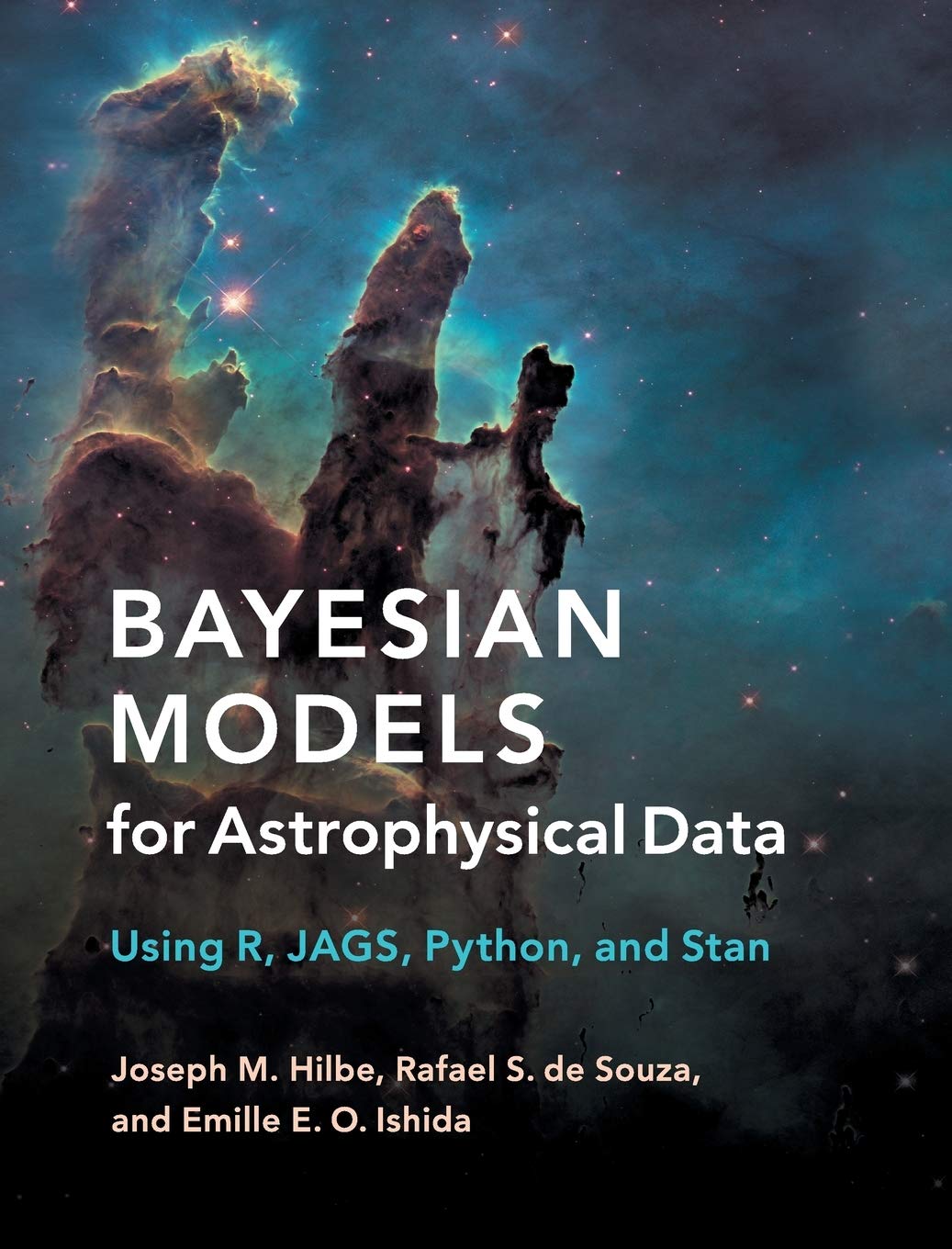An interview with Rafael S. de Souza
Paulo · July 27, 2022
Hello everybody! Please meet Rafael S. de Souza (Rafa), Brazilian astrophysicist, amateur sci-fi writer, data scientist and an enthusiastic Overleaf user! Rafa gave us this lovely interview and told us about his research and how Overleaf is a key tool for his work — we hope you enjoy it!
Can you tell us a bit about yourself and your research group?

I am an associate professor at Shanghai Astronomical Observatory and founder and Chair of the Cosmostatistics Initiative (COIN). COIN is an international collaboration composed of researchers from various disciplines scattered worldwide.
My research mainly focuses on astrostatistics, but I have worked on various topics, including galactic and extragalactic astrophysics, machine learning, nuclear astrophysics, and statistical methods for medical research. I wrote a book about Bayesian Models for Astronomy, which later received a PROSE Award.
The COIN's primary mission is to develop novel methodologies around astronomical problems and transform data into scientific discoveries.
What are the biggest challenges you face in your work, and maybe in astrophysics as well?
The challenges are broad, from developing new statistical methods to astrophysics to more mundane logistics problems. The main challenge is to organize a close and productive collaboration with people all over the planet during not-so-easy times.
How did you first find out about Overleaf?
I have used LaTeX since my time at university in the late 90s. Installing a bunch of libraries was necessary, and sharing documents was tricky. I got to know Overleaf when it was WriteLaTeX, in the early stages of development. I do not remember the exact moment, but our community is always looking for any new technology, so we share things almost in real-time as they appear.
Can you tell us a bit how you and your research group use Overleaf?
Overleaf is used to write our scientific papers and other academic duties, like resumes, and recommendation letters, to cite a few. Once we start writing the results of scientific discovery, we use Overleaf to speed up the process of transforming our results into a paper for further peer review.
Which Overleaf features are important to help you overcome challenges in your work?
Key aspects include the capability to collaborate in real-time, version control, and that I don't need to worry about installing LaTeX packages locally.
What is your typical work flow? Do you have any favorite LaTeX packages?
We do not have a rigorous working flow, but the projects are generally conceptualized during our meetings (either online or virtual). Then once we have a clear idea of the steps, we start working on specific tasks, mostly related to coding and data processing. Then Overleaf comes in handy just after this first stage to set up the project's overall structure. It is hard to tell about preferred packages since I use many. However, TikZ is among my favourites for its ability to draw stunning visualizations.
On average, based on your workflow, could you tell us how much time Overleaf has saved you per paper/project?
Hard to express a number here, primarily because we have used Overleaf (or a predecessor) in COIN since the early stages. I think the time itself for paper production would not change that much; the critical aspect is that the paper would be less democratic. Back in the day, mainly the leading author would do most of the job in writing, and other authors would send comments via, e.g. annotated PDFs.
Along the same lines, on average, how many drafts/rounds of revision do you do on a project/paper?
In terms of minor revisions, just too many. Major revisions, I would guess, around ten at least for long papers and 5 to short ones.
You mentioned international collaboration — that's fantastic! We were wondering how Overleaf helped you and your team when working with people all around the world, considering the challenges involved (language, customs, time zone, etc.).
Since we have researchers from all time zones, one of the advantages is to be able to edit the manuscript around the clock. This feature provides a significant advantage in cases where a critical paper needs to be published fast, or a grant deadline is just ahead.
In summary, how would you describe your overall experience using Overleaf in one sentence?
Overleaf enables real-time collaboration of scientific writing and represents a significant player in the open-science movement.
What a great interview, thanks Rafa! We would love to hear from you too! Feel free to reach out to us at welcome@overleaf.com and share your thoughts about your experience with Overleaf!